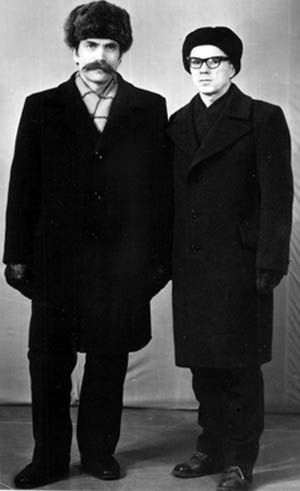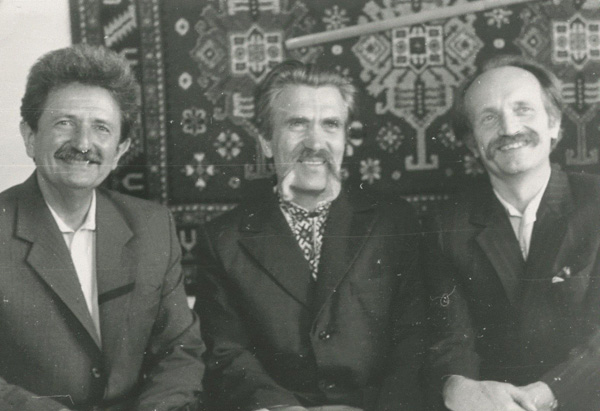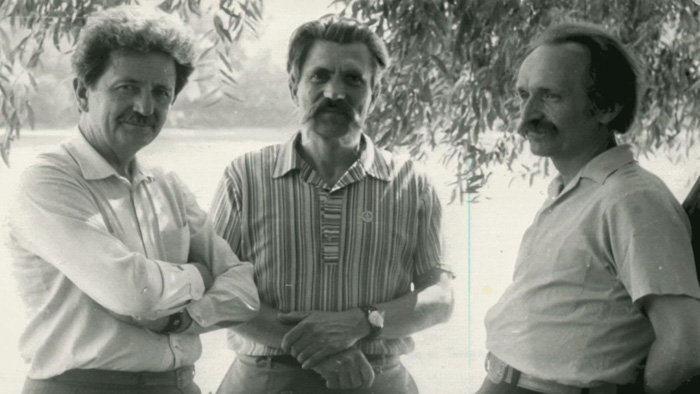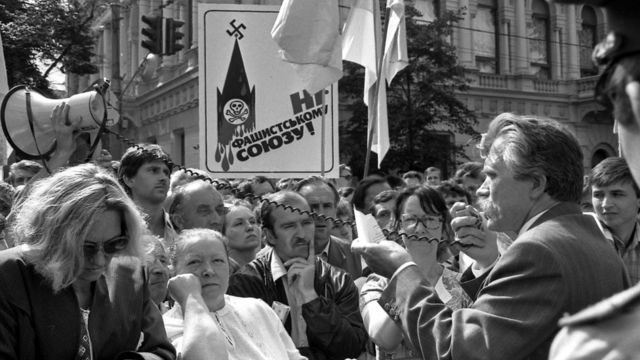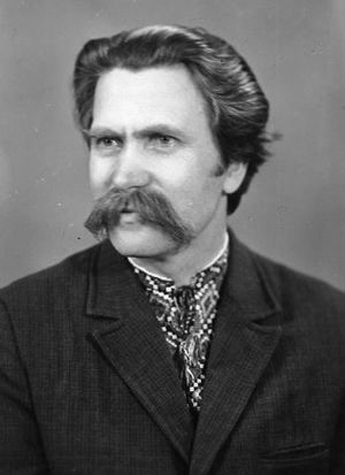Lukianenko, Levko
Lukianenko, Levko [Лук’яненко, Левко], b 24 August 1928 in Khrypivka, Chernihiv oblast, d 7 July 2018 in Khotiv, Kyiv oblast. Lawyer, political dissident, and politician. Lukianenko was one of the two best-known dissidents (the other was Viacheslav Chornovil) active in politics in Ukraine just before and after the country’s independence.
Born into a peasant family, Lukianenko served in the Soviet Army from 1944 to 1953. In 1953, after completing studies in an evening school for military officers, he was admitted to the Faculty of Law, Moscow State University, graduated in 1958, and was assigned to work as a political propagandist in Lviv oblast. Here he organized, together with Ivan Kandyba and others, a dissident group called the Ukrainian Workers’ and Peasants’ Union (UWPU). The UWPU’s program was quite radical; in particular, it defended the right of secession of Ukraine from the Soviet Union. On 21 January 1961 Lukianenko was arrested, expelled from the Communist Party, and accused of advocating separatism, undermining the credibility of the Communist Party, and defaming the ideology of Marxism-Leninism. In May 1961 the Lviv oblast court tried and sentenced him to the death penalty in accordance with Articles 56-1 and 64 of the Criminal Code (CC) of the Ukrainian SSR. After Lukianenko waited for 72 days for the death sentence to be carried out, it was commuted to 15 years’ imprisonment in penal labor camps. Other members of the UWPU were sentenced to terms ranging from 10 to 15 years’ imprisonment.
Lukianenko served his sentence in Mordovian and Perm penal labor camps for political prisoners. He was further punished, for continuing his protest and political activities in these camps, to spend part of his sentence in Moscow’s Vladimir prison (1967–70, 1974–5). Lukianenko was released from detention on 20 January 1976 and settled in Chernihiv where, unable to find more suitable employment, he worked as an electrician.
In September 1976 Lukianenko agreed to Mykola’s Rudenko’s proposal that he become a founding member of the Ukrainian Helsinki Group (UHG) and began to prepare some of the UHG’s documents. After months of harassment because of his UHG-related and other political activities, Lukianenko was arrested on 12 December 1977. He then announced a hunger strike, refused to testify in his court case, and renounced his Soviet citizenship. On June 17–20, 1978, the Chernihiv oblast court, in accordance with Article 62-1 of the CC of the Ukrainian SSR, sentenced Lukianenko to 10 years’ imprisonment and 5 years’ exile as an especially dangerous recidivist. Lukianenko served his sentence in Mordovian and Perm special-regime penal labor camps where, together with other prisoners, he continued his protest activities. On 10 December 1987 he began his term of internal exile in Tomsk oblast, RSFSR where, in March 1988, he was chosen, in absentia, to head the renewed UHG and, soon afterwards, on 7 July 1988, he was chosen, also in absentia, to head its successor organization, the Ukrainian Helsinki Association (UHA).
As a result of Mikhail Gorbachev’s perestroika reforms, Lukianenko was pardoned and freed from exile on 30 November 1988, returning to Ukraine in early 1989. In March 1990 he was elected a deputy to te Supreme Soviet of the Ukrainian SSR. On 29–30 April 1990 the founding congress of the Ukrainian Helsinki Association was held. The UHA was renamed the Ukrainian Republican party (URP), and Lukianenko was elected head of the URP. He co-authored the Declaration on the State Sovereignty of Ukraine, adopted by the Supreme Soviet on 16 July 1990, and during the night of 23–24 August 1991 Lukianenko, together with other deputies, composed the 1991 Ukraine’s Declaration of Independence in response to the coup attempt, on 19 August, whereby hardline communist leaders in Moscow tried to restore full central control over the USSR. The Act was passed by the Supreme Soviet, with overwhelming approval, on 24 August 1990. Later that year Lukianenko was a candidate, from the URP, for the post of Ukraine’s president, and during the presidential elections held on 1 December 1991 he came in third place, behind Leonid Kravchuk and Viacheslav Chornovil, with 4.5% of the votes cast. Soon afterwards Lukianenko resigned as a deputy to serve as Ukraine’s first ambassador to Canada, from May 1992 to November 1993.
Following his return to Ukraine, Lukianenko continued his political career. In addition to his partial term as a deputy to the Supreme Council of Ukraine of the first convocation (1990–92), he served as a deputy during the second (1994–8), fourth (2002–6), and fifth (2006–7, partial term) convocations (in 2002 and 2006 he was elected a deputy as part of the Yuliia Tymoshenko Bloc, which included, among other parties, the Ukrainian Republican party). He did not run as a candidate in the extraordinary parliamentary elections of 2007, citing has age as the main reason, but remained active in a variety of public organizations.
Lukianenko was highly regarded in nationalist circles in Ukraine for his personal courage in promoting the cause of Ukraine’s independence, and his uncompromising stance in defence of Ukraine and the interests of ethnic Ukrainians. He received several awards for his service to Ukraine and was awarded with an honorary doctorate by the University of Alberta (Edmonton, Alberta, Canada) in 1993.
In his later years, however, Lukianenko was harshly criticized for making a variety of xenophobic statements and for his close ties with the Kyiv-based Interregional Academy of Personnel Management (MAUP). MAUP, which published many of Lukianenko’s works, has been considered to be one of the most persistent anti-Semitic institutions in Eastern Europe, and has published much of the xenophobic literature circulating in Ukraine.
Most of Lukianenko’s published work (numerous books, and many articles/pamphlets) is autobiographical or journalistic/polemical in nature, with the partial exception of his history of the Ukrainian Helsinki Association Do istorii Ukrains'koi Hel'syns'koi Spilky (Towards a History of the Ukrainian Helsinki Association, 2010). His collected works, in 13 volumes, were published under the general title Shliakh do vidrodzhennia (The Path to Revival, 2014–5).
BIBLIOGRAPHY
Maistrenko, Ivan (comp.). Ukrains'ki iurysty pid sudom KHB (Munich 1968)
Sadovs'kyi, Stepan (comp.). Zupynit' kryvosuddia! Sprava Levka Luk’ianenka (Munich 1980).
Kuryko, Vira. Vulytsia prychetnykh. Chernihivs'ka sprava Luk’ianenka (Kyiv 2020)
Ivan Jaworsky
[This article was written in 2021.]

.jpg)
